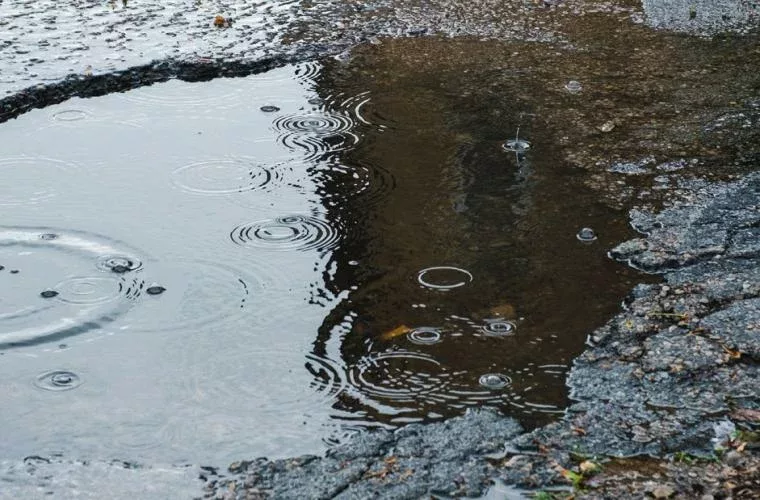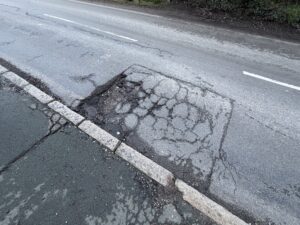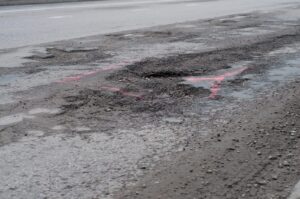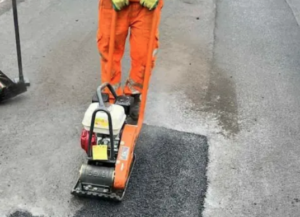The University of Surrey has started research to investigate the use solar-to-ground heat exchange to prevent freeze-thaw damage to roads.
Upheaval for the road pavement sector: could freeze-thaw damage be avoided using solar-to-ground heat exchange technology? (image © Ints VikmanisDreamstime)
A five-year research programme led by Benyi Cao, a lecturer in civil and environmental engineering at the University of Surrey, aims to unlock a cost-effective way of using solar-to-ground heat exchange to prevent freeze-thaw damage of road pavements, reports World Highways.
Freeze-thaw action is one of the main causes of potholes in the UK, explained Mr Cao, alongside traffic loads and water. By preventing the road temperature falling below zero, roads would last longer, reducing the cost and carbon emissions due to maintenance works and improving road safety.
“There were 5,000 pothole-related injuries over the past five years,” said Cao.
The £80,000 project, 80% funded by the Royal Academy of Engineering and 20% by Surrey University, will boost the heat-storing potential of soil beneath or beside the roads using special microcapsules under development by advanced engineering materials company Versarien. “Soil does not naturally have enough heat storage capacity which is why we want to introduce the capsules to increase it.”
The capsules will consist of an inner core of a phase change material (PCM), a substance, such as paraffin, which releases or stores a huge amount of energy as it changes phase between liquid and solid. This will be surrounded by a polymer and coated in graphene which has a high thermal conduction capacity. Versarien will be developing the capsules with Cambridge University, where Cao previously worked extensively on microcapsule technology.
The system would see a network of pipes, with water running through them, installed in the road layer beneath the surface. These would be connected to a network of storage pipes in the sub-grade of the road. In the summer, heat would be taken away from the road in and stored in the ground so that in the winter, it could be reversed to prevent the road pavement from freezing.
Initially, the system could be used with a heat pump, to boost the temperature of the warmer water in the winter. Or it may even be possible to run the system without a heat pump, said Cao, which would be a far more cost-effective solution.
The development of the microcapsules is already underway, together with the start of numerical modelling to simulate the mechanical performance of the road with heating. The next step will be to install a test system on the University of Surrey campus, with a location already earmarked. National Highways will then trial it somewhere on the strategic road network.























